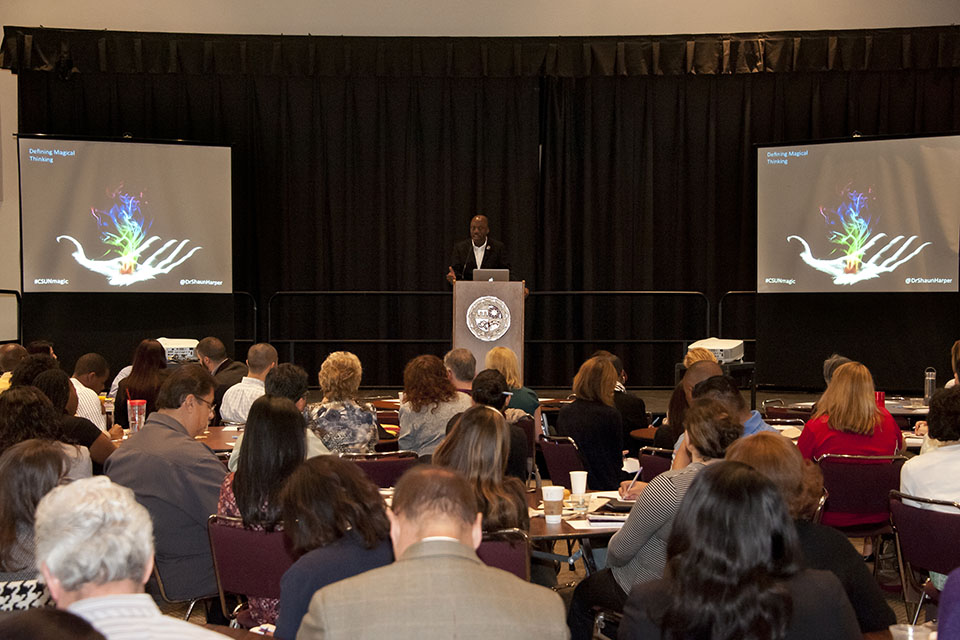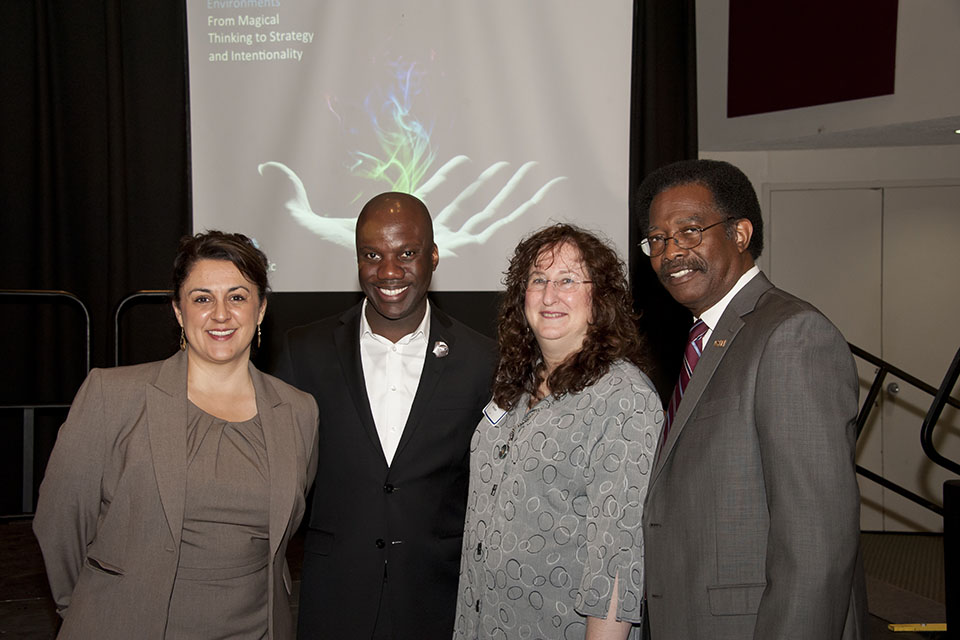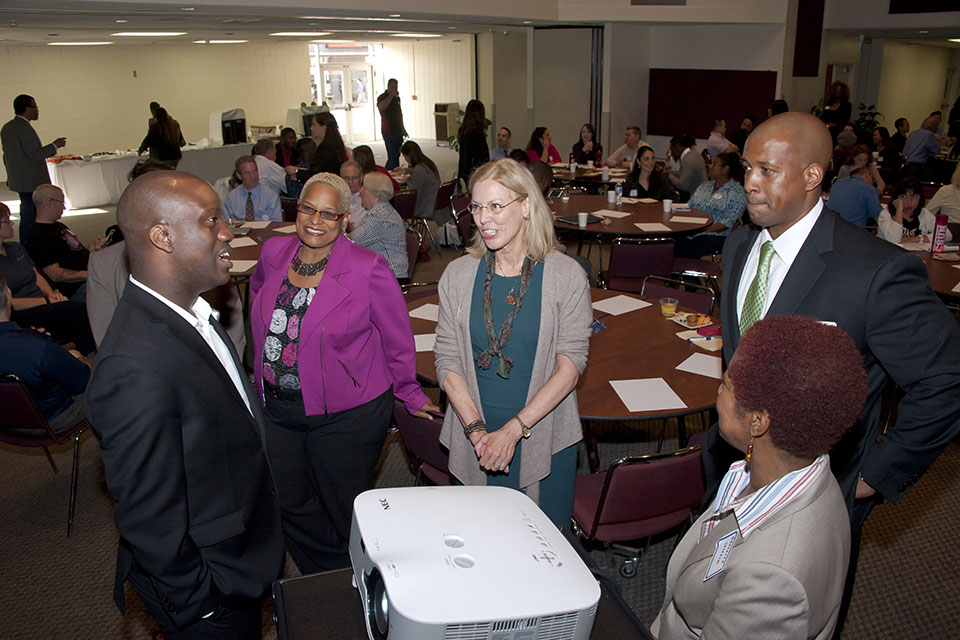Terry Piper Lecturer Encourages Universities to Create ‘Intentional’ Diversity Plans
Shaun R. Harper, a national expert on equity and student engagement in higher education, encouraged campus leadership at California State University, Northridge’s fourth-annual Terry Piper Lecture to create “intentional” opportunities campuswide to support inclusiveness and diversity.
Harper, a faculty member in the Graduate School of Education, Gender Studies, and Africana Studies at the University of Pennsylvania, where he also serves as executive director of the Center for the Study of Race and Equity in Education, spoke to a packed room on March 9 in the University Student Union’s Northridge Center.
“Student success doesn’t happen magically,” said Harper, who defined the concept of “magical thinking” as the assumption that powerful educational outcomes will be automatically manufactured through student-initiated engagement with peers who are different. He said if university administrators and faculty want to create inclusive campus environments, they must create a plan that includes administrators, faculty and staff from across campus to support open discussions and diversity.
“The plan should not just include the faculty of color or a staff person with little influence,” Harper said. “A plan like this must include everyone and take the best of what we know and adopt it.”
The event is named after Piper, who served as vice president of student affairs at CSUN for nearly 10 years, and who strove to actively partner with campus colleagues in support of student success as a member of the university’s executive leadership team. He is credited with reshaping CSUN’s Division of Student Affairs to align with the most current thinking and practices supporting student learning and success. Piper passed away in May 2010 after a courageous battle with melanoma.
“This annual lecture is a fitting tribute to Dr. Piper,” said CSUN President Dianne F. Harrison. She said CSUN is proud of its “strong tradition of commitment to access and diversity.”
CSUN is ranked 16th in the country in awarding bachelor’s degrees to underrepresented minority students, fifth nationally in awarding master’s degrees to Hispanic students and enrolls the largest number of deaf and hard-of-hearing students of any mainstream university in the United States.
Harper, a prolific writer on student success of diverse populations in higher education as well as on institutional culture, has published 12 books and more than 90 peer-reviewed journal articles and other academic publications. He noted that to “simply have a diverse student body is insufficient.”
He said students may not still feel comfortable or confident enough to engage with the campus to become successful.
“When students don’t feel a tremendous sense of belonging, they leave,” Harper said. “They have to feel like they belong and that there are support systems in place.”




 experience
experience